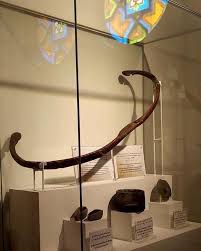Leadership in Islam is built on justice, accountability, and sincere service to the people. One of the finest examples of this can be seen in the incident involving Sa’d ibn Abi Waqqas, one of the ten companions promised Paradise, and Umar ibn Al-Khattab, the second Caliph of Islam.
📍 The Appointment
Umar ibn Al-Khattab (RA) appointed Sa’d ibn Abi Waqqas (RA) as the governor of Kufa, a newly established city with a diverse population. Despite Sa’d’s noble status and deep connection with the Prophet Muhammad ﷺ, some individuals from Kufa began to complain about his governance — even going so far as to claim that “he doesn’t know how to lead the prayer.”
📨 The Investigation
Umar, known for his firm sense of justice and responsibility, did not ignore the complaints. Instead, he summoned Sa’d to Madinah to hear from him directly.
When questioned, Sa’d replied:
“I lead them in prayer just as the Messenger of Allah ﷺ used to pray. I do not shorten or alter anything.”
He explained that he would lengthen the first two units of the night prayer (Isha’) and shorten the final two, just as the Prophet ﷺ did. Umar replied:
“That is what we assumed about you, O Abu Ishaq.”
Although Umar trusted Sa’d, he still wanted to confirm matters directly with the people. He dispatched a team of investigators to visit the mosques of Kufa and ask the community about their governor.
🗣 The People Respond
In every mosque they visited, people praised Sa’d and spoke of his righteousness and fairness. However, when the investigators reached the mosque of Banu Abs, a man stood and said:
“If you insist on asking, then I must say: Sa’d does not go out with us to fight (in jihad), he does not distribute wealth fairly, and he is not just in his judgments.”
These were serious accusations. When Sa’d heard of them, he said:
“By Allah, if this man said it out of falsehood and slander, I will supplicate against him with three prayers.”
He then prayed:
-
“O Allah, prolong his life,”
-
“Increase his poverty,”
-
“And expose him to trials.”
— and added: “…if he lied for show and reputation.”
🔁 The Consequence of Injustice
Allah accepted Sa’d’s dua. That man lived a very long life, fell into deep poverty, and in his old age — with his eyebrows drooping over his eyes from age — he became a public example of disgrace. He would walk in the marketplaces harassing women, and when people rebuked him, he would say:
“I am a trial-stricken old man — I was cursed by Sa’d!”
🧭 The Moral
This incident reflects the high standard of justice upheld by the righteous caliphs and companions. It shows that:
-
No one is above accountability — not even a companion of the Prophet ﷺ.
-
Leaders must be fair and open to feedback.
-
False accusations have consequences, especially against those known for their piety and sincerity.
May Allah be pleased with Sa’d ibn Abi Waqqas and Umar ibn Al-Khattab, and allow us to learn from their honesty, dignity, and fear of Allah in leadership.
 English
English
 العربية
العربية


Add New Comment